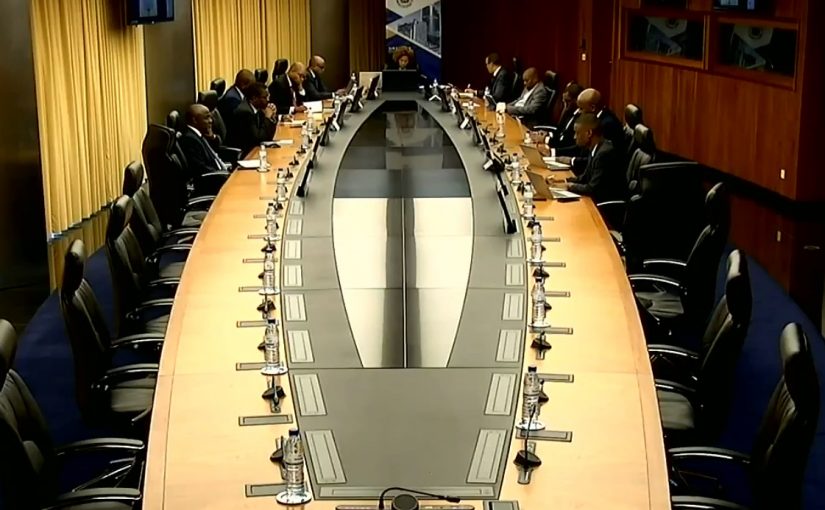Mozambique: LAM claims improvement in its finances - AIM | Watch
Mozambique: Banks at risk after rise in reserves to be held by central bank – business | Watch

Screen grab: CTA
The president of the Portugal-Mozambique Chamber of Commerce, João Figueiredo, along with other businesspeople, on Friday warned that the increase in compulsory reserves required of Mozambican commercial banks could have unpredictable consequences on the country’s financial system.
The measure may “shake the financial system, mainly the smaller banks, with consequences that we cannot measure today,” he said at a meeting between the Bank of Mozambique (central bank) and the Mozambican Confederation of Economic Associations (CTA).
The leader, who has had a career in Mozambican banking and is also non-executive chairman of Moza Banco, said that the new coefficients were “truly unsustainable”.
At issue is the increase in reserves that banks have to keep with the central bank (money parked without remuneration): the regulator decided on Wednesday to increase the coefficients to 39% of liabilities (in the case of deposits) in local currency and 39.5% in the case of foreign currency.
It was the second rise of the year, whereas at the beginning of 2023 the coefficients were 10.5% and 11.% respectively.
The central bank justified the action “aiming to absorb excessive liquidity in the banking system, with the potential to generate inflationary pressure,” but businesspeople think that the decision will increase interest rates, making it even more expensive to contract financing, which is essential in an economy of small and medium-sized companies, which will have more difficulties.
Oldemiro Belchior, vice president of financial policy and services at the CTA, said at the same meeting that the decision “will pose challenges for the banks”.
READ: Mozambique: Economy may have to ‘bleed’ to contain inflation – central bank
“We see difficulties for some small and medium-sized banks in meeting these requirements,” especially at a time when “they are not managing to quickly convert the deposits they take into credit, because market interest rates are relatively high and demand is increasingly depressed,” he said.
In other words, there are challenges “both on the demand side – those who consume credit – and on the supply side – those who provide it,” and the discussion gets serious because “business activity is still essentially financed by banking”.
“It is time for Mozambique to think about alternative sources of financing the economy,” he added.
As an example, Figueiredo suggested that lines of credit should be created for strategic sectors and that this funding should be deducted from obligatory reserves – an idea noted by the central bank, said the director present at the meeting, Silvina Abreu.
At the same time, he appealed to the central bank, as “adviser to the State”, to try and take fiscal measures to counterbalance those of monetary policy.
The increase in reserves may even harm the goals of financial inclusion, he said, giving the picture of banks that open branches around the country, but then cannot give credit, because of every million, 400,000 have to be deposited without remuneration at the central bank.
Silvina Abreu suggested that banks should use more “creative” ways to make it possible to finance the economy.
“In this issue of taking, as we all want, interest rates to lower levels, all players should play their part,” she said, recalling that the central bank’s mandate is to ensure the stability of the currency (metical) with low inflation.
“We think it is necessary that a moment be consented to, in the short term, when the economy – because of the effects of monetary policy – may be bleeding, so to speak, but for the greater good,” she said.
“We are fighting for the effect then to be a reduction in inflation where all economic agents that are operating in the market can benefit from that, including households,” she concluded.
READ: Bank of Mozambique stops contributing to fuel import bills, starting today












Leave a Reply
Be the First to Comment!
You must be logged in to post a comment.
You must be logged in to post a comment.